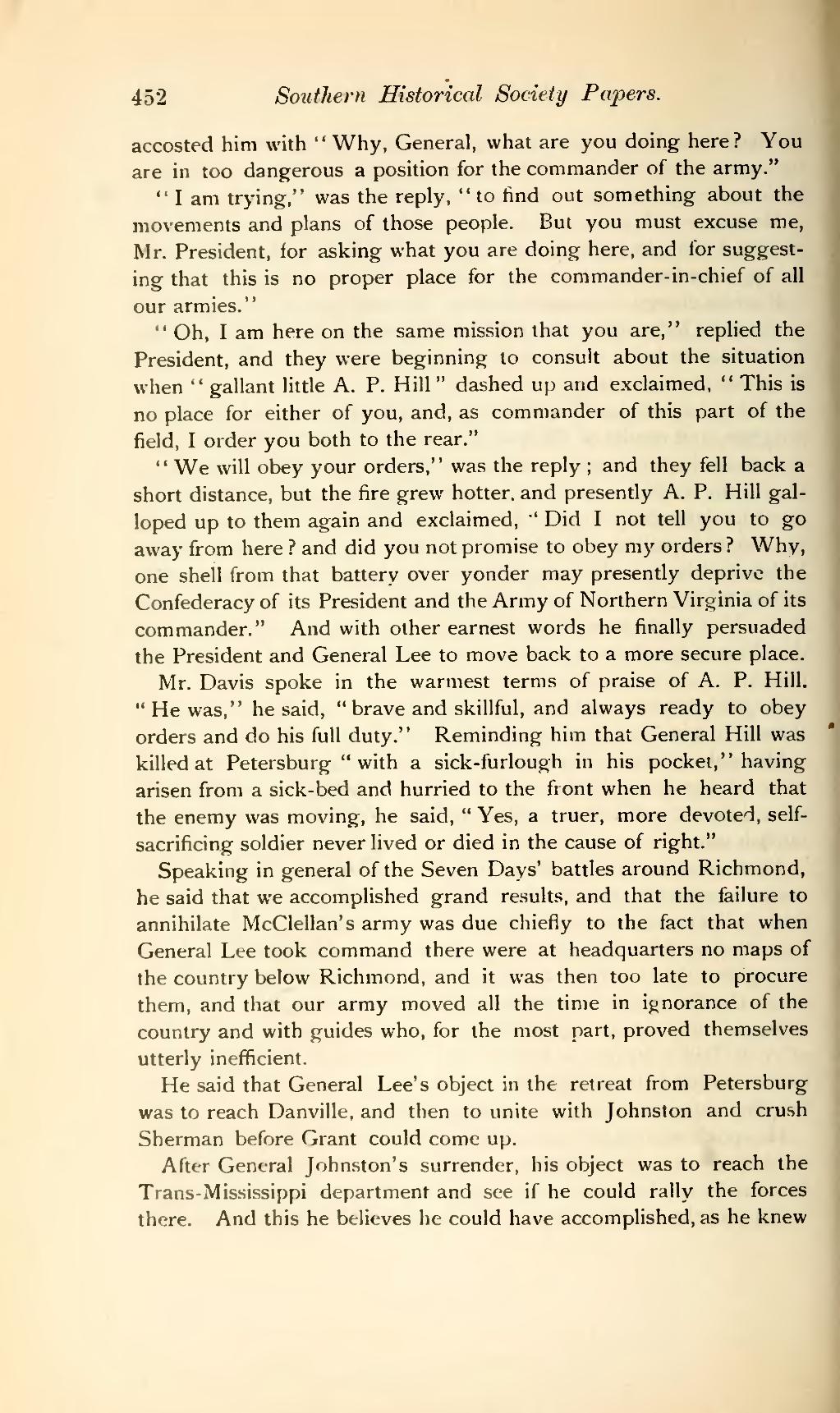452 Southern Historical Society Papers.
accosted him with " Why, General, what are you doing here? You are in too dangerous a position for the commander of the army."
"I am trying," was the reply, " to find out something about the movements and plans of those people. But you must excuse me, Mr. President, for asking what you are doing here, and for suggest- ing that this is no proper place for the commander-in-chief of all our armies."
" Oh, I am here on the same mission that you are," replied the President, and they were beginning to consult about the situation when " gallant little A. P. Hill " dashed up and exclaimed, " This is no place for either of you, and, as commander of this part of the field, I order you both to the rear."
" We will obey your orders," was the reply ; and they fell back a short distance, but the fire grew hotter, and presently A. P. Hill gal- loped up to them again and exclaimed, ' Did I not tell you to go away from here ? and did you not promise to obey my orders ? Why, one shell from that battery over yonder may presendy deprive the Confederacy of its President and the Army of Northern Virginia of its commander." And with other earnest words he finally persuaded the President and General Lee to move back to a more secure place,
Mr. Davis spoke in the warmest terms of praise of A. P. Hill. "He was," he said, " brave and skillful, and always ready to obey orders and do his full duty." Reminding him that General Hill was killed at Petersburg " with a sick-furlough in his pocket," having arisen from a sick-bed and hurried to the front when he heard that the enemy was moving, he said, " Yes, a truer, more devoted, self- sacrificing soldier never lived or died in the cause of right."
Speaking in general of the Seven Days' battles around Richmond, he said that we accomplished grand results, and that the failure to annihilate McClellan's army was due chiefly to the fact that when General Lee took command there were at headquarters no maps of the country below Richmond, and it was then too late to procure them, and that our army moved all the time in ignorance of the country and with guides who, for the most part, proved themselves utterly inefficient.
He said that General Lee's object in the retreat from Petersburg was to reach Danville, and then to unite with Johnston and crush Sherman before Grant could come up.
After General Johnston's surrender, his object was to reach the Trans-Mississippi department and see if he could rally the forces there. And this he believes he could have accomplished, as he knew
